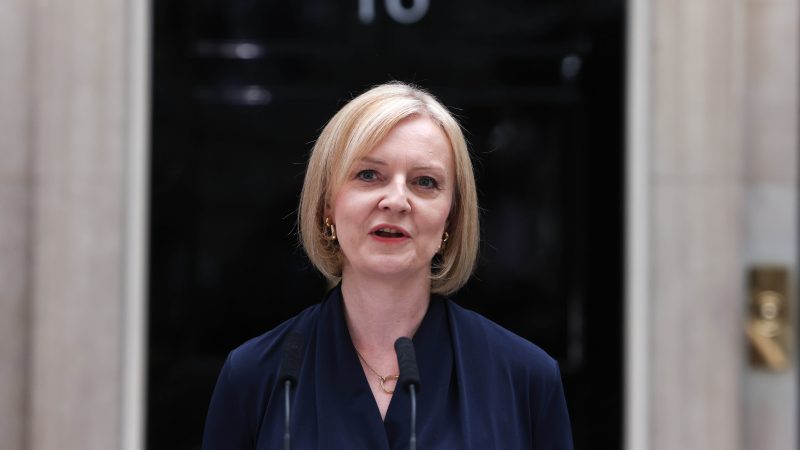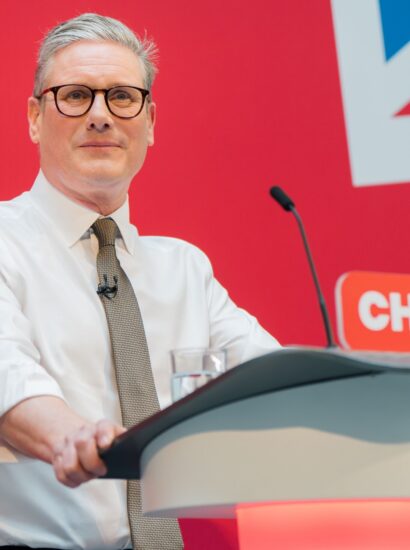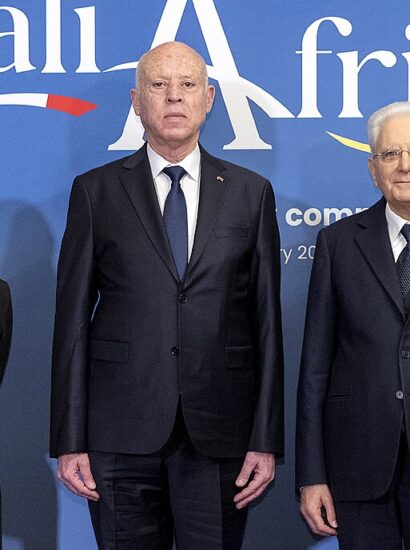Jim Tomlinson, University of Glasgow
When Chancellor Kwasi Kwarteng unveiled his mini-budget on September 23, he was making it clear that the government is prioritising economic growth over inflation – which was one reason the financial markets reacted so badly to his plan.
This clear willingness to risk higher inflation strongly echoed the budget of 1971, when Anthony Barber, the Conservative chancellor of the time, announced a large expansionary package of fiscal and monetary measures. He made it clear that he would not reverse his stance even if it produced sufficient downward pressure on the pound to force the currency, previously fixed in value, to be floated. The pound was indeed floated in 1972, but by the end of 1973 it was clear the boom was unsustainable, and the policy was reversed.
Margaret Thatcher took an entirely different stance when she took over the Tory leadership in 1975. For her, high inflation threatened not just serious disruption to economic activity, but to undermine the fabric of society by pitching all against all in a struggle to maintain real incomes.
This contrast needs to be contextualised against the recent economic history of Britain. For over two decades after 1945, Britain had low inflation, averaging around 3%.
There was an initial increase in inflation following the devaluation of the pound in 1967, but the first impetus for the serious increase evident in the early 1970s was Barber’s “dash for growth”. This “dash” aimed to restore economic growth to the healthy levels of the 1950s and 1960s – levels that had stalled in 1970-71.
At the end of 1973, this policy-driven inflationary upsurge was greatly added to by the quadrupling of oil prices, as Opec used its monopoly power in response to the Arab-Israeli war. The result was higher inflation across the world, given how reliant almost every country was on oil. But the rate in Britain was exceptional, reflecting the fact that the Opec-induced rise came on top of domestic factors.
The social contract
This was the situation which had to be grappled with by the incoming Labour government in February 1974. The government had been elected following the serious industrial relations breakdown under Edward Heath, on the promise that it could establish a much better relationship with the trade unions.
So central to its attempt to reduce inflation was a “social contract”, in which government would make concessions to the unions. It would, for example, implement more favourable industrial relations law – and in return, the unions would limit wage increases, thereby counteracting the “wage/price spiral”.
At the same time, the Labour government announced in the budget of 1975 that it would rein in fiscal and monetary expansion, despite the recession of 1974-5 brought about by the oil-price rise, which was reducing incomes available for non-oil purchases.
This reduced inflationary pressure from the demand side of the economy.
Initially, the social contract had little effect, as workers saw their real wages eroded. But by 1975, with inflation over 20%, the policy started to kick in, and inflation fell to around 8%-10% by the time Labour lost office in 1979.
This relative success in reducing inflation was nevertheless offset politically by the fact that the government had kept wage rises down most effectively in the public sector. Public sector workers, especially the lowest paid among them, suffered serious falls in their real wages. It was they who spearheaded the “winter of discontent” of 1978-9, which was so damaging to Labour’s electoral support in the 1979 election.
When Thatcher became prime minister in 1979, reducing inflation was given the highest priority. Central to Thatcher’s politics was the claim that both poor growth (“decline”) and high inflation were ultimately the result of irresponsible trade unions and the governments that appeased them.
With the traumatic events of 1972-4 and the winter of discontent very much in mind, focusing on inflation and making unions the prime culprit made overwhelming political sense.
But today trade unions are far weaker than in the 1970s, and their power cannot be used to frighten the electorate in the same way. Hence it makes sense for a Conservative government to express its “concern” about inflation, but to focus its policies on increasing growth – everybody’s economic panacea.
This strategy has already caused a crisis and very partial U-turn, but the underlying thrust of policy is the same. The precedent of Barber’s boom suggests that output can be raised substantially in the short run by such policies, but on an unsustainable basis. If sharp boosts to demand could shift the underlying growth rate every government since the war would have pursued this path, but as with Barber and previous occasions, such an approach soon proves deceptive.
The question for Truss is whether any initial signs of growth could be used to deliver an election victory for the Conservatives in 2024 before the inevitable reversal kicks in.![]()
Jim Tomlinson, Professor of Economic and Social History, University of Glasgow
This article is republished from The Conversation under a Creative Commons license. Read the original article.







